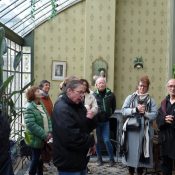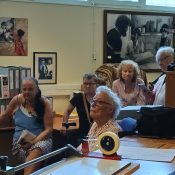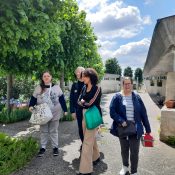When Archives Come to Life #AccessibleArchives
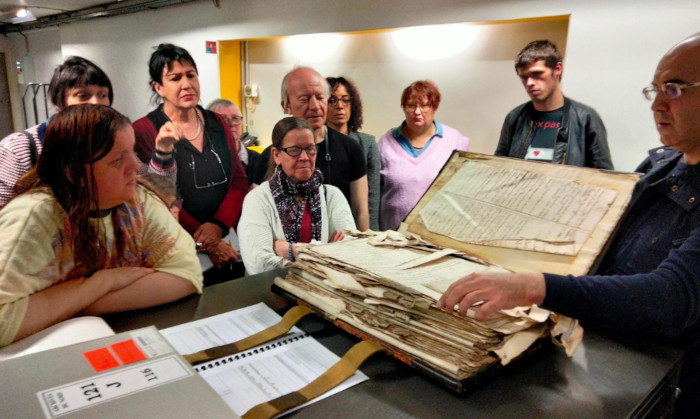
![]() Reading time 3 minutes
Reading time 3 minutes
On 11 June, the inauguration of the exhibition “Meeting Geneviève de Gaulle-Anthonioz: A Refusal of the Unacceptable” took place at the Economic, Social, and Environmental Council (ESEC) in Paris. It will remain open throughout the summer, both inside the Palais d’Iéna (ESEC’s headquarters) and along its gates. The exhibition coincides with International Archives Week 2025 (#IAW2025), held from 9 to 13 June, with this year’s theme: #AccessibleArchives: Archives for All.
The Creation of the Exhibition
The exhibition was created by members of ATD Fourth World with both lived and learned experience of poverty in the Nord–Pas–de–Calais region of France. It is a powerful example of how access to archives can serve as a tool for illumination and liberation.
The research for the exhibition began in Lille, at the Charles de Gaulle Birthplace Museum. The museum is the ancestral home of the former president of France and of his older brother, de Gaulle-Anthonioz’s father. De Gaulle-Anthonioz was a resistance fighter in World War II and a survivor of the Ravensbrück concentration camp. The exhibition was enriched by the narratives of other female resistance fighters from the region, sourced from the Archives Départementales du Nord (Departmental Archives of the North).
The Joseph Wresinski Archives and Research Centre, located on the outskirts of Paris, also provided access to the ATD Fourth World archives. De Gaulle-Anthonioz was president of ATD Fourth World from 1964 to 1998, and alongside its founder, Joseph Wresinski, she devoted all her energies to changing French society.
An extract from the exhibition
“A fire [in 1960] destroyed an igloo [a fibre cement dwelling in the shantytown] and caused the death of two small children. In the camp chapel, families and friends gathered around the grieving parents and Father Joseph, who was celebrating Mass. I found again what I had experienced in Ravensbrück: the misery of the bodies and the unbreakable fraternity of the poorest, shoulder to shoulder.
Whatever form it takes, I now know that the solidarity I felt with my fellow deportees has extended to others. I don’t know them well, but we are united forever.”
Geneviève de Gaulle-Anthonioz, 8 February 1982
Words to express resistance
By sharing this collective memory, those involved in the project found their own voice, providing valuable accounts of their experiences and their stand against the unacceptable. They are now able to pass this legacy on to future generations.
During a creative workshop held at the Fourth World House in Lille, participants reflected on the words that symbolised resistance for them, from wartime resistance to the daily resistance of people living in poverty. Their voices, strong and often rendered invisible by extreme poverty, deserve to be heard.
Here is an excerpt of what they wrote:
To Tell
Tell in a few words or in long sentences.
Tell them to share, so that no one feels alone.
Tell so that everyone knows.
Tell what is hidden and must be revealed.
Tell in order not to explode.
Tell them to bring history to life.
To Survive
Survive your suffering so you can help others.
Survive hunger, fatigue.
Survive so as not to give in.
Survive with strength, with hope.
Survive — don’t let yourself be dragged down.
Surviving isn’t easy.
Survive for others, fight to help.
Survive to make history.
Survive loss, injustice, and cruelty.
To Endure
Endure suffering,
Endure the enemy,
Endure together to fight,
Endure so as not to be defeated,
Endure without faltering,
Endure without forgetting to reflect,
Endure, endure… but endure together.
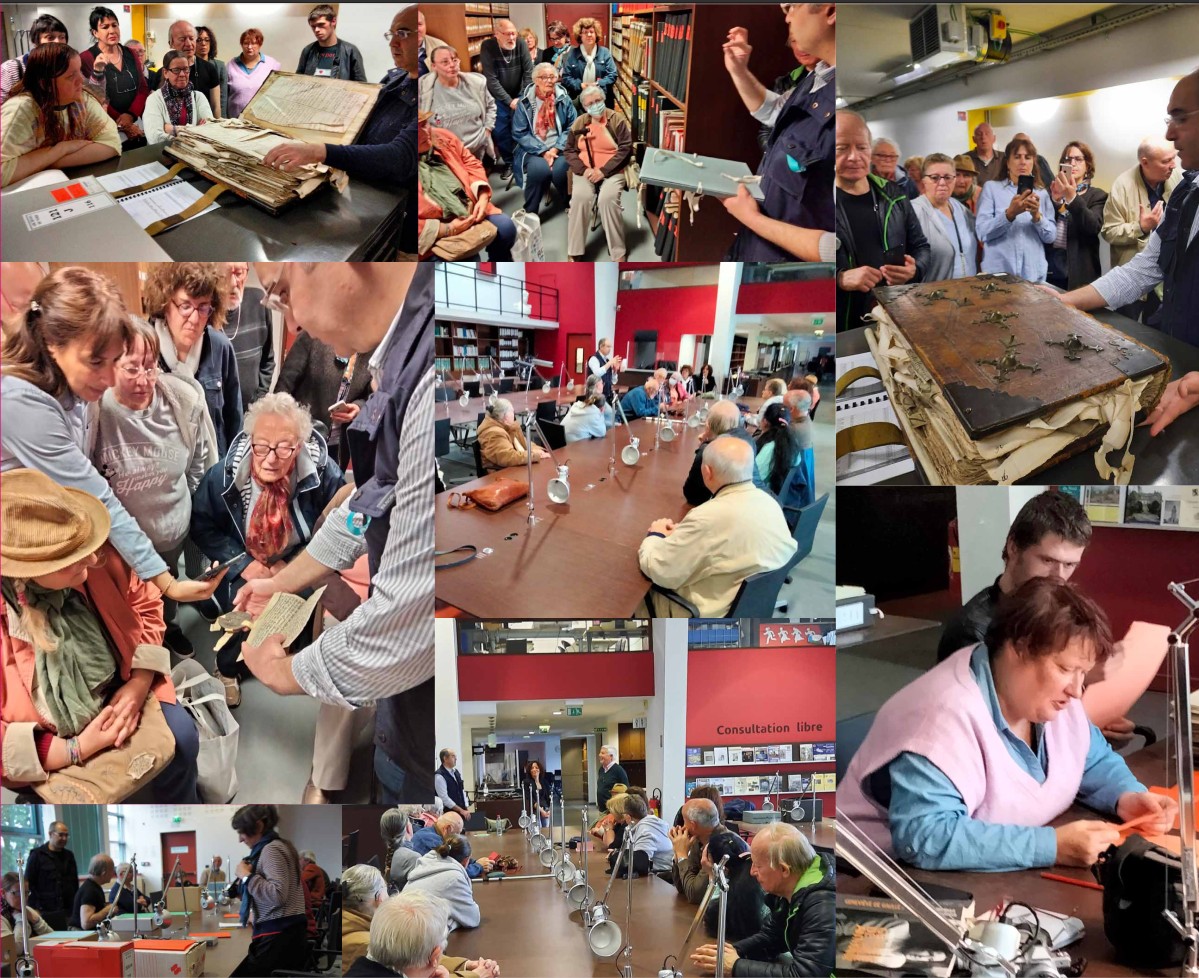
Exhibition created with the support of ATD Fourth World members in the Hauts-de-France region.
Article written by the Joseph Wresinski Archives and Research Centre


